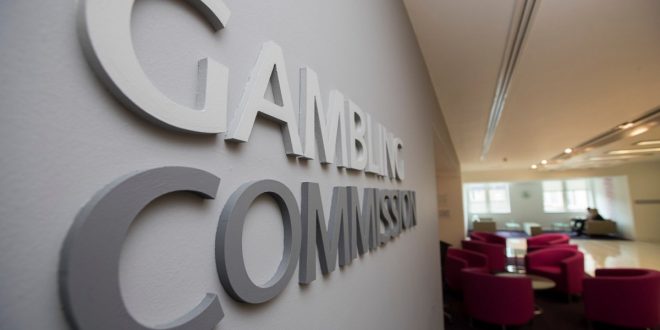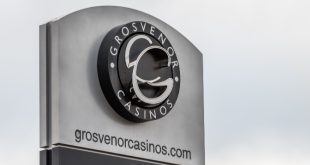The Gambling Commission is playing hardball with the Rank Group as it imposes a £5.85m fine for social responsibility and anti-money laundering failures at subsidiary Daub Alderney. The regulator is adamant that gambling operators will face the full consequences of regulatory failures, even if breaches occurred prior to ownership, however Rank believes that there are both equity and public policy issues raised by this case and will be seeking an appeal to the First-Tier Tribunal.
Daub Alderney, the licensed arm of the Stride Gaming business that Rank Group acquired two years ago, runs aspers.com, kittybingo.com, luckypantsbingo.com, luckyvip.com, magicalvegas.com, regalwins.com and spinandwin.com. Along with the fine, the Gambling Commission has also issued a formal warning for the failures which occurred between January 2019 and March 2020.
The regulator said that social responsibility failings included neglecting to put into effect policies and procedures for customer interaction where it has concerns that a customer’s activity may indicate problem gambling.
Helen Venn, Commission Executive Director, said: “This case was the result of planned compliance activity and every operator out there should be aware that we will continue to take firm action against those who fail to raise standards.”
While she said that a good proportion of these failures occurred before Rank took control of the business in October 2019 and that there had been improvements since acquisition, that doesn’t mean that the Commission will take a softer approach: “The Licensee’s culpability, and the requisite penalty reflecting that culpability, cannot be affected by the fact that its shares have now passed from one set of investors to another. The Licensee does not escape or mitigate the consequences of its actions because its shares are sold.”
In its annual statement last month, Rank revealed that the fine had been almost doubled during the process and that it will be appealing to the higher court against that judgement. It said: “The UKGC identified concerns regarding Daub’s compliance arrangements in respect of its anti-money laundering and safer gambling controls principally relating to activities prior to its acquisition by Rank. As a consequence, the UKGC levied a £3.0m fine on Daub which Rank does not believe fairly reflects their findings nor takes account of the significant remedial actions taken by Rank following the acquisition. The UKGC has been clear that it is not penalising Rank or suggesting that Rank has been in any way at fault.
“Rather, the UKGC is merely concerned with the licensed entity, Daub, which it considers should pay a penalty for the identified regulatory breaches regardless of whether they pre-date Rank’s ownership of the business. Following an appeal on the size of the penalty to the Gambling Commission’s Regulatory Panel, the fine was increased to £5.9m. Rank considers that there are both equity and public policy issues raised by this case and will be seeking an appeal to the First-Tier Tribunal.”
Among the examples of regulatory failure given by the Gambling Commission include:
- One customer was allowed to lose £43,410 in four months despite displaying problem gambling harm indicators such as using four different payment cards in one day and reversing £133,873 in requested withdrawals.
- During a month-long relationship a second customer lost £40,500 but the operator sent the consumer just two safer gambling messages and a pop up which were not evaluated for effectiveness.
- During a three-and-a-half month period a third customer lost £39,000 but received just one safer gambling message and two pop ups which were not evaluated for effectiveness.
- Anti-money laundering failures at Daub Alderney included having inappropriate policies, procedures and controls in place to prevent money laundering and terrorist financing.
- One customer was allowed to deposit £50,000 before the operator sought source of funds evidence
- A second customer was allowed to deposit £41,500 in a month without supplying adequate source of funds evidence
- Over an eight-month period a third customer was allowed to lose £53,000 but during that time the only source of funds evidence obtained by the operator was to establish that the customer lived in a house estimated to be worth £233k
The Commission added that Rank Group co-operated throughout the investigation.








